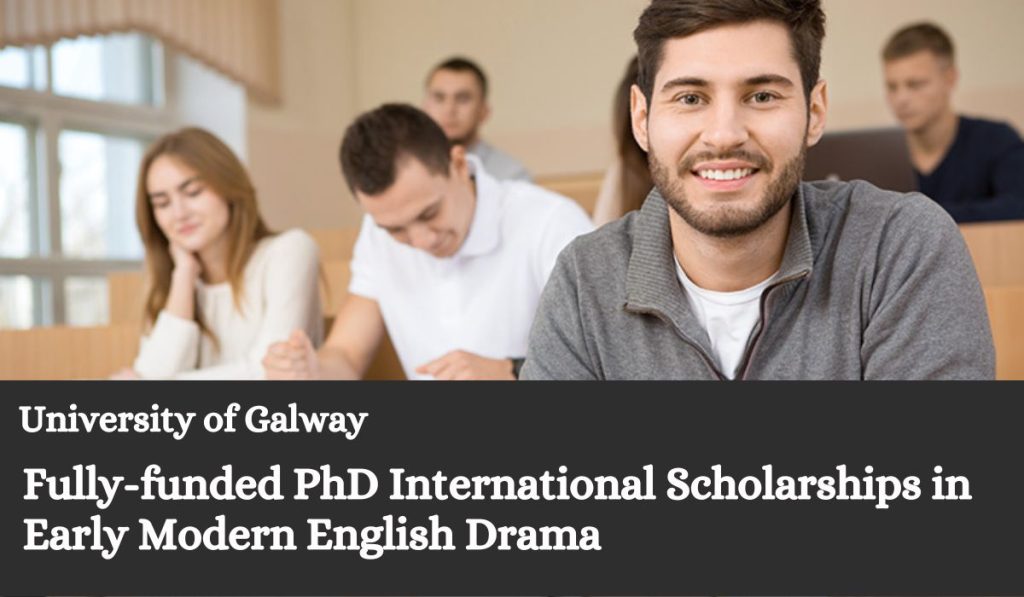Suitably qualified candidates are encouraged to apply for a Fully-funded PhD Scholarships in Early Modern English Drama associated with the College of Arts, Social Sciences, and Celtic Studies at the University of Galway. The position will commence on 1st September 2024 and is available for a duration of four years, contingent upon satisfactory progress.
The aim of this scholarship program is to support outstanding scholars in conducting research that explores how English drama from 1560 to 1660 invoked global locations as sources of suspicion, cultural interest, and colonial desire. The project seeks to investigate the interplay between early modern English drama and emerging senses of national identity amidst significant political shifts and global ambitions of the period.
-
Award
-
Application Process
-
Clarity of Information
User Review
( votes)Established in 1845, the University of Galway has a rich heritage of providing high-quality education and fostering a vibrant intellectual community. With state-of-the-art facilities and a diverse student body from around the globe, the university offers a dynamic learning environment that encourages critical thinking and creativity. Its College of Arts, Social Sciences, and Celtic Studies, in particular, is known for its world-class faculty and groundbreaking research initiatives. Committed to sustainability and community engagement, the University of Galway is not only a hub of academic achievement but also a driving force for positive change in society.

